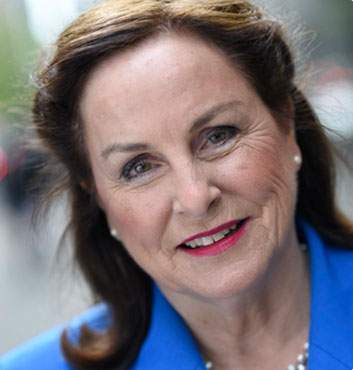Why do we have it? The public needs to be educated. Last year, there were over 107,000 overdose deaths in the United States, according to the Centers for Disease Control. Fentanyl, a powerful substance causing cessation of breathing, can be ground into any pill and is killing a large population of youth nineteen and younger. Illegal drugs are being easily smuggled across the border from Mexico.
Mental health, particularly among the young, is a problem that was made worse by the Covid-19 pandemic. Suicide is now the second largest cause of death.
Drug addiction should be treated as a health issue, not a criminal one. Substance abuse disorder is not a moral failure or weakness. Medications for Opioid Use Disorder such as buprenorphine or methadone are necessary to maintain sobriety and should not be considered substituting one drug for another.
Not only does the public need to be educated, but police officers, lawmakers, emergency room workers, doctors, and of course, the families who are affected by the addiction crisis. There are approximately twenty-two million Americans who are in recovery today. Yes, it is possible to not only get sober, but remain sober. It IS a treatable disease as addiction expert Howard C. Samuels, Psy.D. of Los Angeles told me this week.
Former founder and owner of The Hills Treatment Center, Dr. Samuels has appeared on CNN, Fox Business Channel, CBS, Health U.S. News.com. and is the co-author of Alive Again: Recovering from Alcoholism and Drug Addiction.
Addicted to heroin at age sixteen, he was arrested in lower Manhattan and JFK Airport for possession of the drug. At age 70, he is now thirty-seven years sober from heroin as well as other substances. His History: At first, he gave up heroin, but thought he could drink. The alcohol abuse led to cocaine on weekends and eventually led back to heroin.
His parents did a legal intervention with him. He had a choice of going to prison for four years or going to a rehab at age 19 for a year. Howard chose the latter. The second time he was in a rehab in California he left to attend his well-known-in-business father’s funeral. His father died in his sixties. Howard realized that life is too short and returned to the California rehab to complete the program. “ This was my psychic shift, he says.”
Howard started working the twelve steps of AA that he still practices today. He holds himself accountable. “You can’t forget that you are powerless against alcohol, the first step of AA. It’s the enemy.”
When asked how parents can support their children with substance abuse disorders, he recommended that parents:
- Don’t give your child money. It will be spent on drugs. You would be “enabling.”
- Don’t let your child live with you when they are under the influence. They will manipulate you, steal your money.
- Get support for yourself (you need help to intervene) and treatment for your child.
- Find a mental health professional who is an addiction specialist as that person has to live in recovery and knows the score. Your child will not be able to manipulate that person.
- Try to find a support system that is NOT for profit. If you send your child to a residential program, make sure there is a refund policy if he leaves.
- The longer he is in rehab, the better. Try 60/90 days, not 28. Follow up with a 1 yr. transitional living.

Wesley Cullen Davidson
Wesley Cullen Davidson is an award-winning freelance writer and journalist specializing in parenting. Currently, she is targeting her writing about recovery to parents whose children have substance abuse disorders.
Excellent article.
Thank you,. Glad you found it informative!